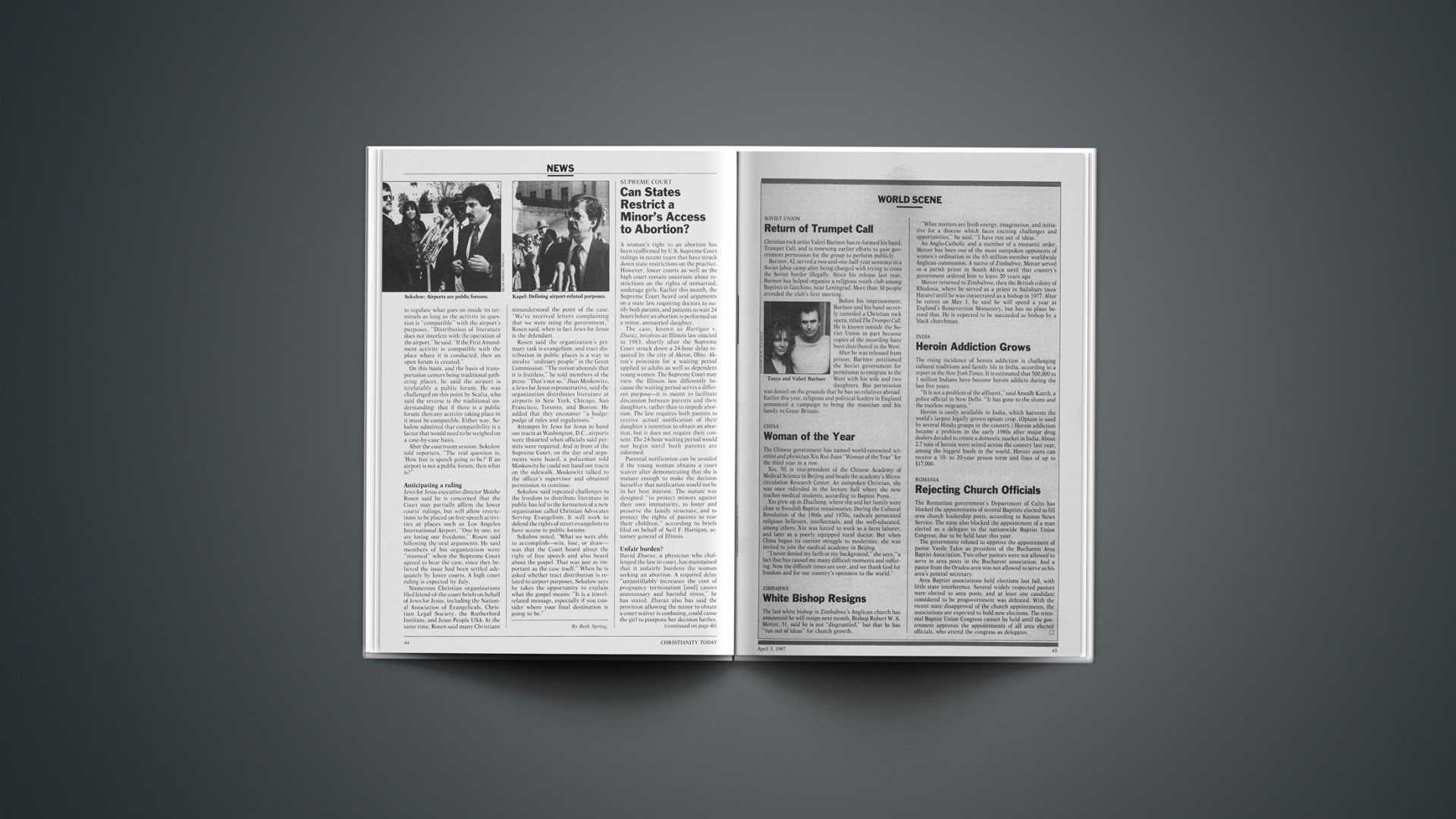A woman’s right to an abortion has been reaffirmed by U.S. Supreme Court rulings in recent years that have struck down state restrictions on the practice. However, lower courts as well as the high court remain uncertain about restrictions on the rights of unmarried, underage girls. Earlier this month, the Supreme Court heard oral arguments on a state law requiring doctors to notify both parents, and patients to wait 24 hours before an abortion is performed on a minor, unmarried daughter.
The case, known as Hartigan v. Zbaraz, involves an Illinois law enacted in 1983, shortly after the Supreme Court struck down a 24-hour delay required by the city of Akron, Ohio. Akron’s provision for a waiting period applied to adults as well as dependent young women. The Supreme Court may view the Illinois law differently because the waiting period serves a different purpose—it is meant to facilitate discussion between parents and their daughters, rather than to impede abortion. The law requires both parents to receive actual notification of their daughter’s intention to obtain an abortion, but it does not require their consent. The 24-hour waiting period would not begin until both parents are informed.
Parental notification can be avoided if the young woman obtains a court waiver after demonstrating that she is mature enough to make the decision herself or that notification would not be in her best interest. The statute was designed “to protect minors against their own immaturity, to foster and preserve the family structure, and to protect the rights of parents to rear their children,” according to briefs filed on behalf of Neil F. Hartigan, attorney general of Illinois.
Unfair Burden?
David Zbaraz, a physician who challenged the law in court, has maintained that it unfairly burdens the woman seeking an abortion. A required delay “unjustifiably increases the cost of pregnancy termination [and] causes unnecessary and harmful stress,” he has stated. Zbaraz also has said the provision allowing the minor to obtain a court waiver is confusing, could cause the girl to postpone her decision further, and could increase the stress of the situation.
An Illinois district court found the law unconstitutional, and a federal appeals court later agreed in part. However, it did not rule on the constitutionality of the provision allowing a minor to avoid parental notification. The appeals court remanded that portion of the case to the district court, instructing it to reconsider the judicial waiver after the Illinois Supreme Court has enacted rules concerning how it is to be carried out. For this reason, attorneys representing Zbaraz have argued that the U.S. Supreme Court has no jurisdiction to decide the case. Ordinarily, cases that reach the Court involve final decisions by lower courts about the constitutionality of local or state laws.
If the high court does rule on the case’s merits, Zbaraz’s attorney believes the justices should find that “there is no medical reason to delay the abortion once the patient and her physician have decided to terminate the pregnancy.”
Allowable Restrictions
Advocates of the Illinois law point out that it is “well settled that the state is accorded broad authority to regulate the activities of minors even when the regulation touches upon or hinders rights that an adult could freely exercise without state interference.” The state, according to earlier Supreme Court rulings, may presume that a minor’s interests are safeguarded by allowing parents some participation and control.
More important, the Court has upheld laws in other states that require parental notification before an abortion is performed. In a case involving a Missouri law, the Court allowed an even more restrictive barrier to abortion: the requirement that parents consent to the procedure. Lawyers for the state of Illinois pointed out, “If states may constitutionally impose such a stringent impediment to a minor’s abortion, Illinois is surely within constitutional bounds.”
A friend-of-the-court brief filed by Americans United for Life (AUL) in behalf of the Illinois law contains an illustration of why parental notification is important. A case in progress in California Superior Court involves a 14-year-old whose junior high school teacher arranged for her to have an abortion. Her parents knew nothing about it, despite the mother’s explicit request to be kept informed about matters relating to her daughter. The AUL brief notes, “The mother eventually learned of the deception and the abortion four days later when summoned to the hospital emergency room where her minor daughter was undergoing emergency surgery for post-abortion complications.”










